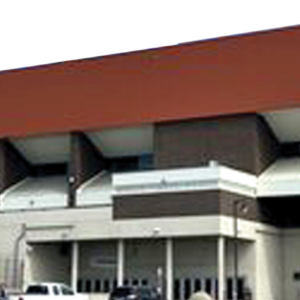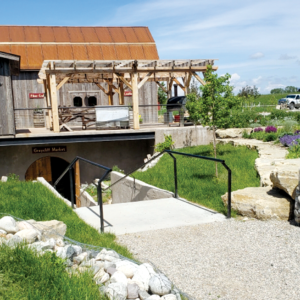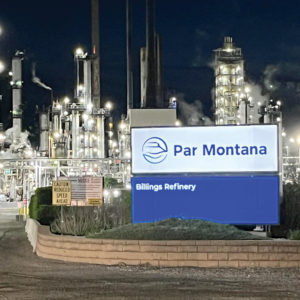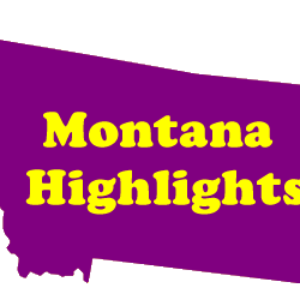Activities and events at MetraPark generates $110.7 million annually to the local economy, according to a recent study commissioned by the MetraPark Advisory Board.
The economic impact is the money spent by visitors attending MetraPark events at local businesses in Billings and Yellowstone County, most especially at motels and restaurants, gas stations and retail shops.
The economic impact of Metra Park is a relevant factor to the community as it considers the pros and cons of the cost to taxpayers in subsidizing the county-owned facility that hosts everything from rodeos and livestock shows to concerts, sports and tradeshows. Each year, MetraPark events draw thousands of visitors to Billings while being subsidized by a property tax mill levy to the tune of $2.5 million.
Mike Mayott, President of the MetraPark Advisory Board, who oversaw the study conducted by Circle Analytics, said that while he considers himself a fiscal conservative this is one expenditure of tax money he considers of value. “I would invest in most anything that returned $44 for every dollar invested,” he said. It seems to be the “greatest investment we can make,” he continued, “We are adding a lot to the economy.” In fact, considering that Yellowstone County has a gross domestic product of over $11 billion, MetraPark contributes a full percentage point to the total annual production of the county.
The research shows that in a comparison to figures from 2018 (the latest year in which all the metrics are the same and comparable) MetraPark improved in every category except one. It also demonstrates that MetraPark has become multi-dimensional, said Mayott.
Mayott reported study results at the previous meeting of the MetraPark Advisory Board, explaining the value of the research that has been done by Circle Analytics. The company is highly regarded in what they do, he said, pointing out that one of their clients is SpaceX.
The MetraPark Advisory Board agreed to continue subscribing to Placer.AI for MetraPark attendance data, which will give MetraPark planners access to on-going current data and to seven years of past data, and to also continue getting analysis from Circle Analytics. Mayott explained that once MetraPark staff is trained in what the data means and how it can be used, it will become a valuable tool. “It will tell us whether we are making the right decisions.”
“Hopefully, it will help to drive the subsidy down,” said Mayott, “to get it as low as possible.”
The cost for annual updates from Circle Analytics is $1500 annually and for on-going data from Placer.AI the cost is $14,000.
While the monetary impact of MetraPark to the local economy is substantial, it does not include the social or civic benefits that MetraPark contributes as a free venue for many youth, educational and non-profit events. Mayott further pointed out that MetraPark serves a broad base of interests in the community. Metra Park also partners with a wide variety of businesses and organizations that further add to the economic base of the community, such as with the Exchange Club that supports non-profits, or companies like Baskin Robbins and Fuddruckers and many other vendors who sell products at MetraPark.
“This is an opportunity to be able to say something good about government,” jested Mayott.
MetraPark Interm Manager Tim Goodridge and Big Sky Economic Development applied for and received a grant from NorthWestern Energy to fund the study.
According to the study, in 2022 more than 819,000 guests attended or participated in a tradeshow, sporting event, or other entertainment at MetraPark. It is estimated that 37.8 percent of those visitors were from out of the area, and that on average they spent $180 per day per visitor. Local attendees were estimated to spend $39 per day.
A summary of the various levels of economic impacts generated by MetraPark were included in the study. The economic impact of $110.7 million, that is annually retained in the local economy, is part of $177.9 million in “Gross Economic Output” annually, which includes indirect and induced impacts. Direct impacts include MetraPark’s annual operating budget, estimated benefits from vendor revenues and the economic value of visitor spending. Indirect impacts of $124.7 million includes purchases that businesses must make in order to serve visitors who come to events at MetraPark (for example increased sales for linen supply firms who sell more linens to motels). Induced effects result from increased household spending from local earnings in the tourism and supporting sectors.
Some of the impacts estimated by business sector were $5,444,827 for “food and beverage stores”; $12,817,771 for “restaurants”; $18,105,583 for “Gasoline stations’; $19,195,826 for “Hotels and motels”; $8,986,765 for “Miscellaneous store retailers”; and $24,811,945 for “Miscellaneous services”.
Other impacts:
—$68.3 million in Total Labor Income
—2,694 total jobs (full and part-time)
—$27.5 million in Capital Income (includes profits, rents, etc.)
—$14.8 million in Indirect Business Taxes and Fees





